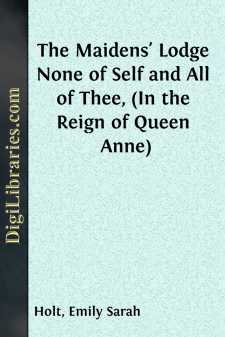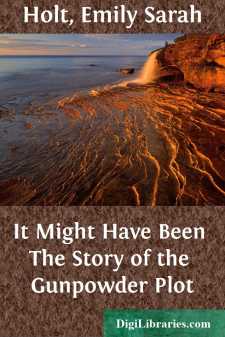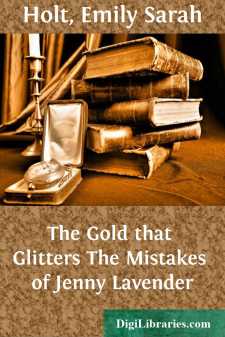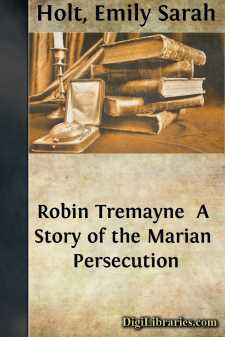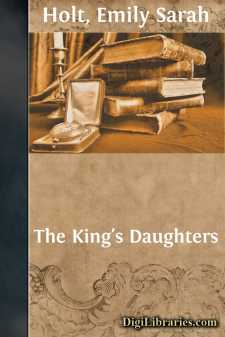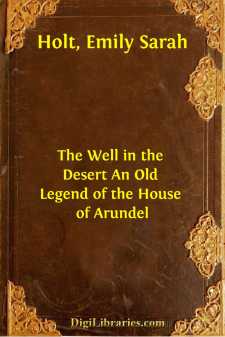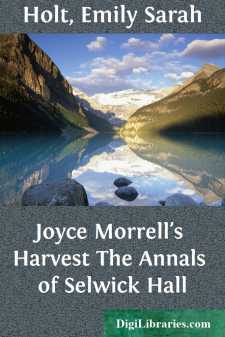Categories
- Antiques & Collectibles 13
- Architecture 36
- Art 48
- Bibles 22
- Biography & Autobiography 813
- Body, Mind & Spirit 142
- Business & Economics 28
- Children's Books 17
- Children's Fiction 14
- Computers 4
- Cooking 94
- Crafts & Hobbies 4
- Drama 346
- Education 46
- Family & Relationships 57
- Fiction 11829
- Games 19
- Gardening 17
- Health & Fitness 34
- History 1377
- House & Home 1
- Humor 147
- Juvenile Fiction 1873
- Juvenile Nonfiction 202
- Language Arts & Disciplines 88
- Law 16
- Literary Collections 686
- Literary Criticism 179
- Mathematics 13
- Medical 41
- Music 40
- Nature 179
- Non-Classifiable 1768
- Performing Arts 7
- Periodicals 1453
- Philosophy 64
- Photography 2
- Poetry 896
- Political Science 203
- Psychology 42
- Reference 154
- Religion 513
- Science 126
- Self-Help 84
- Social Science 81
- Sports & Recreation 34
- Study Aids 3
- Technology & Engineering 59
- Transportation 23
- Travel 463
- True Crime 29
Sort by:
by:
Emily Sarah Holt
Phoebe arrives at White-Ladies. “The sailing of a cloud hath Providence to its pilot.” Martin Farquhar Tupper. In the handsome parlour of Cressingham Abbey, commonly called White-Ladies, on a dull afternoon in January, 1712, sat Madam and her granddaughter, Rhoda, sipping tea. Madam—and nothing else, her dependants would have thought it an impertinence to call her Mrs Furnival. Never was...
more...
by:
Emily Sarah Holt
Chapter One. The last Night in the Old Home. “Which speaks the truth - fair Hope or ghastly Fear? God knoweth, and not I.Only, o’er both, Love holds her torch aloft, And will, until I die.” “Fiddle-de-dee! Do give over snuffing and snivelling and sobbing, and tell me if you want your warm petticoat in the saddle-bag. You’d make a saint for...
more...
by:
Emily Sarah Holt
Jenny prepares to go a-journeying. “Jenny, my dear maid, thou wilt never fetch white meal out of a sack of sea-coal.” Jenny tossed her head. It would have been a nice little brown head, if it had not been quite so fond of tossing itself. But Jenny was just sixteen, and laboured under a delusion which besets young folks of that age—namely, that half the brains in the world had got into her head,...
more...
by:
Emily Sarah Holt
Preface. More than three hundred years have rolled away since the events narrated in the following pages stirred the souls of men; since John Bradford sat down to his “merry supper with the Lord;” since Lawrence Saunders slept peacefully at the stake, lifted over the dark river in the arms of God; since Ridley and Latimer, on that autumn morning at Oxford, lighted that candle in England which they...
more...
by:
Emily Sarah Holt
We alight at Brocklebank Fells. “Sure, there is room within our hearts good store;For we can lodge transgressions by the score:Thousands of toys dwell there, yet out of door We leave Thee.” George Herbert. “Girls!” said my Aunt Kezia, looking round at us, “I should just like to know what is to come of the whole four of you!” My Aunt...
more...
by:
Emily Sarah Holt
Choosing a new gown. “Give you good den, Master Clere!” said a rosy-faced countrywoman with a basket on her arm, as she came into one of the largest clothier’s shops in Colchester. It was an odd way of saying “Good Evening,” but this was the way in which they said it in 1556. The rosy-faced woman set down her basket on the counter, and looked round the shop in the leisurely way of somebody...
more...
by:
Emily Sarah Holt
Preface. It is said that only travellers in the arid lands of the East really know the value of water. To them the Well in the Desert is a treasure and a blessing: unspeakably so, when the water is pure and sweet; yet even though it be salt and brackish, it may still save life. Was it less so, in a figurative sense, to the travellers through that great desert of the Middle Ages, wherein the wells were...
more...
by:
Emily Sarah Holt
Chapter One. The Dwellers at Selwick Hall. “He would be on the mountain’s top, without the toil and travail of the climbing.”—Tupper. Selwick Hall, Lake Derwentwater, October ye first, Mdlxxix. It came about, as I have oft noted things to do, after a metely deal of talk, yet right suddenly in the end. Aunt Joyce, Milly, Edith, and I, were in the long gallery. We had been talking a while...
more...
by:
Emily Sarah Holt
A Regular of Oxenforde. “Give me the book, and let me read; My soul is strangely stirred—They are such words of love and truth As ne’er before I heard!” Mary Howitt. The sun was shining brightly on the battlements and casements of Lovell Tower. The season was spring, and the year 1395. Within the house, though it was barely seven o’clock in the...
more...


